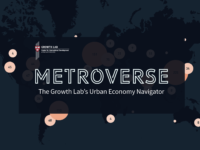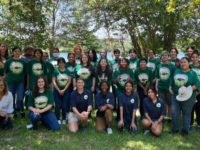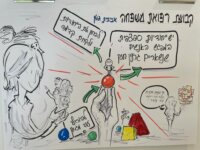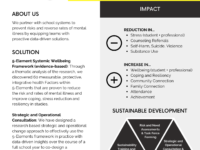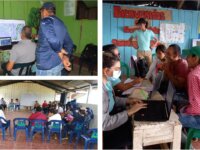Officina is a lab for innovation in the public sector whose main objective is to catalyse the energy of young talents by offering them a transformative training programme. Officina was developed to address a triple urgency: future decision makers not perceiving the public sector as an attractive workplace; the public sector having high average age workforce and lack of innovative approaches; society at large needing a more modern and appealing public sector in this key historical moment.
Innovation Tag: Design
UK Government is investing in innovative public policy design expertise. Public policy design has been gathering momentum over the past 10 years. But 2022 was a landmark year for public policy design. For the first time, the UK’s government is sponsoring major networks that champion design as key for making policy and services that drive outstanding public value.
The Future Tech Challenge (FTC) is a pilot initiative led by DPER to connect and collaborate across the wider ecosystem, and engage in transformative innovation by experimenting with, and applying new technology to address pressing public sector problems and opportunities that deliver improved services to the public. Drive innovation using emerging technology, enhance collaboration, meet National strategic priorities, generate knowledge & learnings and develop prototyped solutions.
Metroverse is an urban economy navigator built at the Growth Lab at Harvard University. It is based on over a decade of research on how economies grow and diversify and offers brand new insights on a city's growth prospects by placing its existing technological capabilities and knowhow at the heart of how diversification unfolds. Metroverse was built using a user-centered design process to help city leaders, policymakers and researchers grapple with 21st-century urbanization challenges.
The Austin Civilian Conservation Corps (ACCC) began as a pandemic response program to help residents earn income and access green careers, and has evolved into a leading model for equitable, climate-focused workforce development. The ACCC, a collaboration with 10+ City departments and multiple community partners, has provided over 125 living-wage opportunities with supportive services, training, and career pathways for Austin’s underserved residents, and is actively shaping the green economy.
Covid-19 outbreak and the new reality led to increase in the demands for remote health services. The health system faced with an adaptive challenge of redesigning remote health services in no time. The Digital Health Department at the Israeli Ministry of Health founded a cross-organizational and cross-professional health practitioners’ community to advance wide scale, informed and safe telemedicine practices through the creation of a learning environment, knowledge sharing, and joint action.
Mind the Class, a mental health prevention organization, is partnering with school systems to reduce the risks and reverse the rates of mental and behavioral health disorders by creating a community ecosystem. This full year project collaboratively designs a preventive implementation plan using proven wellbeing research and data-driven solutions in collaboration with our University of Warsaw partners and through local public and private partners support sustainable development.
Case Study
Driving Artificial Intelligence in Public Services through accredited upskilling and project…
The Foundation Certificate in AI project seeks to make Ireland a world-leader in the ethical application of Artificial Intelligence across the Irish civil and public services by 2030 and is in line with the digital ambition, which the government of Ireland set itself. The project aims to upskill/reskill Irish Civil & Public Servants, identify a pipeline of potential AI projects that can improve service delivery, deliver value for money and is aligned National Strategy in AI & Innovation.
Several land areas in Colombia lack of formal registry and documents as a consequence of the absence of territorial information and the aftermath effects of the armed conflict. Through the intensive use of new technologies and innovative methodologies, the problem of characterization of vacant areas was addressed by using novel methods to consolidate land data and information, benefiting the farmers of the area.
The Latrobe Health Assembly has undertaken a co-design process with service providers, government and people with lived experience to develop an innovative mental health cafe model for Latrobe City. The cafe has and continues to involve people with lived experience at all levels. It aims to: increase opportunities for peer support and social connection; reduce emergency department presentations for non-emergency mental health issues; and improve mental health consumer experiences and outcomes.

